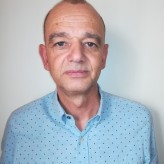Information about the project
1. Country: Kenya
2. Project lead: Maji Milele Ltd
3. Project Partners: Susteq, Aqua Etiam, AKVO
4. Working on pressing need(s): Access to purified water at affordable rates
Unique characteristics of your project:
In Kenya, over 10 million people in Kenya rely on water sources which are not fit for human consumption. These people live in areas with water sources that are high in salt or fluoride and only have 2 options: buying bottled water which is far too expensive for most people or drink the contaminated water. Boiling water or adding chlorine will not reduce salt or fluoride levels.
Maji Milele developed a new franchise business model, where vendors dispense purified water via 24/7 prepaid water ATMs. Customers can refill their own containers, bottles, etcetera, which reduces costs tremendously: no bottling plan required, no bottles, no taxes on bottled water and very low distribution costs. All this cuts down costs to about 30% of the price of bottled water. Payments and performance can be monitored on-line. Purified water is stored in water tanks with colloidal silver balls, which release silver ions to prevent bacteria from reproduction and bacteria will eventually also be killed. We use the colloidal silver balls instead of post treatment via UV-light, which requires electricity which is not always available in developing countries.
If TDS levels are not too high, we use new water purification equipment that work with power saving Nano Reversed Osmosis membranes, making our approach extra innovative. Maji Milele engages local entrepreneurs via a franchise model and offers to co-invest in these power saving purification technologies in combination with prepaid ATM outlets.
How far is the project?
We started the project mid 2017. By October 2018 we signed the first contract with an entrepreneur. By now (26-2-2018) everything is installed, but operations start after being licensed by KEBS (see below).
Main learning experiences so far
- After sending out our periodic newsletter and after calling a number of organizations/entrepreneurs that might be interested. We received very positive reactions, but when push comes to shove, entrepreneurs are very slow in making decisions because the story we offer them is great, but they haven't seen this model working, so they consider it still to be risky.
- In Kenya entrepreneurs can officially only start a purified water business if they have a permit from KEBS (Kenya Bureau of standards). This process can take 3-4 months and requires a lot (documents, tests, other permits). We started this a bit late. If we would have started earlier, we could have been 4-6 weeks earlier with getting the KEBs permit.
- When approaching potential entrepreneurs, we mostly focus on urban areas because population density is better than in rural areas and by average people in urban areas have more purchasing power. However, in most cities there a big water utitlities that provide water, that is often trusted by people, possibly after boiling the water or adding chlorine. In rural areas the are often not official water service providers. Water supply is managed by water committees, who mostly lack water treatment facilities and even less for dealing with high Fluoride or Salt levels, which is the focus of our our project.
- We want to compete with companies that sell bottled water. The price per liter of bottled water depends quite a bit to the size of the bottle/container. The price per liter for a container of 20 liter is obviously substantially lower than the price for a bottle of 500 ml or 1 liter. We have requested our supplier of prepaid meters for communal usage to design software that aligns with the pricing structure of bottled water. Our purified water is about 80% cheaper than bottled water, independent of the volume. This is very interesting for the entrepreneurs, because they can now make very high gross profit margins of sales of small volumes, while nobody will complain that a 500 ml bottle will for example cost Kes 5 (gross profit margin per liter might be 400%). The price of 500 bottled is mostly Kes 25.

Hey Marcel, nice to see you on the Via Water Platform. We met at the end of last year at the 'meet the partners' event. I'll be interested to follow the progress of Maji milele! kind regards, Cheryl